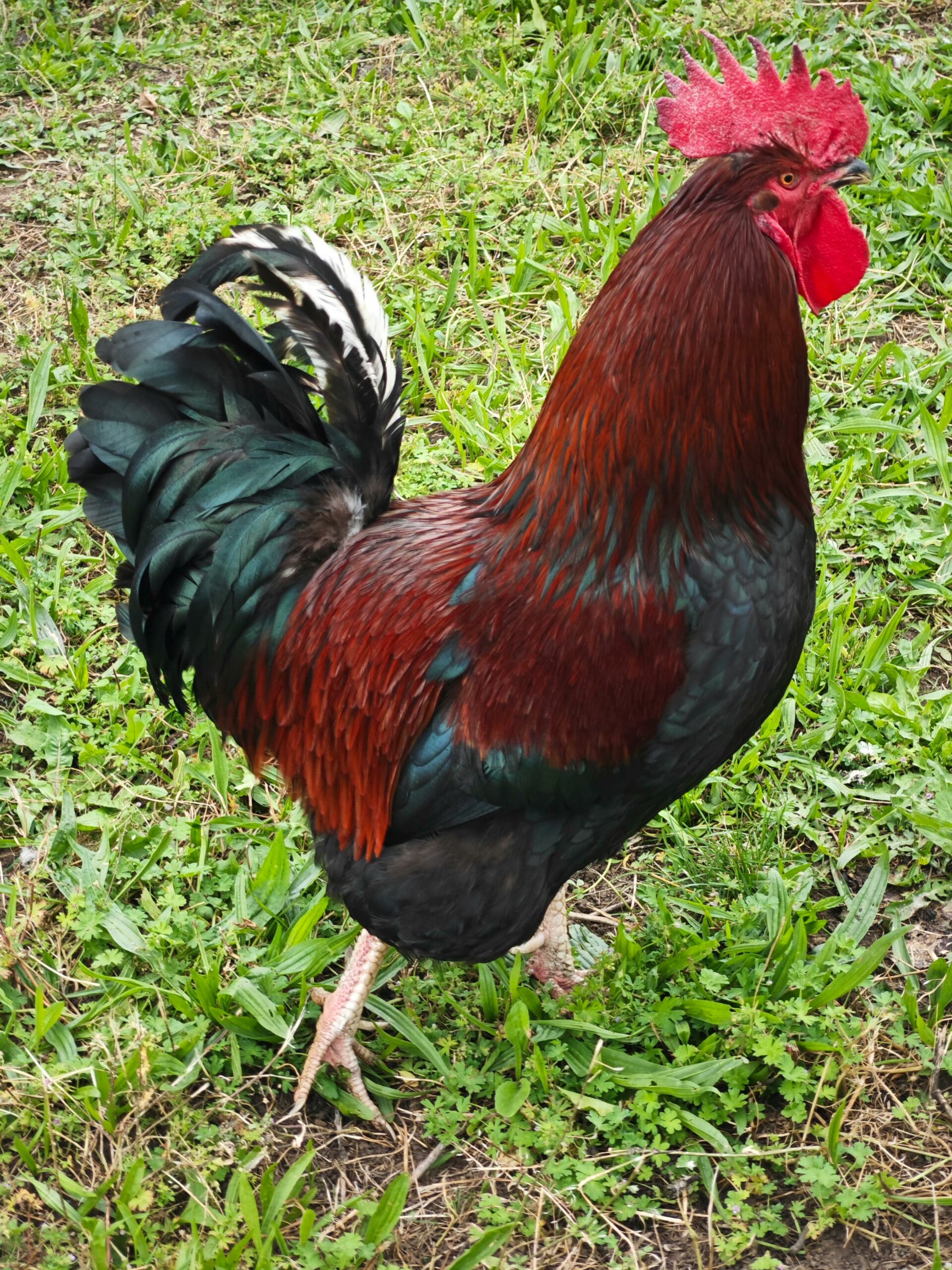Are you curious about the secret behind Hempstead poultry farms success? These farms have been revolutionizing the way we think about sustainable and ethical chicken farming. With the rising demand for organic free-range chicken and locally sourced poultry products, Hempstead poultry farms stand out as a beacon of innovation and quality. Have you ever wondered how these farms manage to produce such high-quality poultry while maintaining eco-friendly practices? The answer lies in their unique farming techniques and dedication to animal welfare. Not only do they focus on providing the best nutrition for their chickens, but they also prioritize minimizing environmental impact. This approach has made Hempstead poultry farms a popular choice among health-conscious consumers looking for antibiotic-free chicken and farm fresh eggs. What makes Hempstead poultry farms different from conventional poultry producers? It’s their commitment to transparency, sustainability, and community support that truly sets them apart. Dive deeper into the world of Hempstead poultry farms and discover why more people are switching to these premium poultry products. Could this be the future of poultry farming? Stay tuned to learn more about the latest trends and innovations shaping Hempstead poultry farms today!
How Hempstead Poultry Farms Achieved Unmatched Success: 7 Proven Strategies Revealed
When it comes to Hempstead poultry farms, there’s a whole lot more going on than what meets the eye. You might think it’s just chickens clucking around, but nah, it’s a whole ecosystem that got its own quirks and charms. Not really sure why this matters, but did you know that Hempstead poultry farms have been around for decades? They don’t just produce eggs and meat, they actually contribute a lot to the local economy and community, even if you wouldn’t notice it by just driving past.
Now, let’s talk about the types of poultry you find on these farms. It’s not just your regular chicken, no sir. You got ducks, turkeys, quails, and even some breeds that you probably never heard of before. Maybe it’s just me, but I feel like the variety is kinda mind-blowing for a small town like Hempstead. Here’s a quick rundown of what you can expect:
| Poultry Type | Common Purpose | Average Farm Size (in birds) |
|---|---|---|
| Chickens | Eggs & Meat | 10,000 |
| Ducks | Meat & Feathers | 2,000 |
| Turkeys | Meat | 1,500 |
| Quails | Eggs & Meat | 500 |
The numbers might change from farm to farm, but this table gives you a rough idea. What’s funny is that most folks only care about chickens, but ducks and quails are getting more popular these days because of their unique tastes and nutritional benefits.
Speaking of nutritional benefits, Hempstead poultry farms are also known for their organic and free-range practices. Not all farmers do it, but many are pushing towards more sustainable methods. They believe that happy birds make better eggs and meat. It’s kinda like us wanting to eat food that didn’t have a rough life, right? Free-range farming means the birds get to roam freely and peck around, which, in theory, makes their produce healthier and tastier. But then again, some skeptics say it’s just a marketing gimmick. Who knows?
Here’s a simple comparison to show the difference between conventional and free-range farming on Hempstead poultry farms:
| Farming Method | Bird Living Condition | Product Quality | Environmental Impact |
|---|---|---|---|
| Conventional | Confined indoors, crowded | Standard | Higher pollution |
| Free-range | Outdoors, more space to roam | Higher quality | Reduced pollution, better soil |
The table above pretty much sums up why some people pay extra for free-range eggs. But honestly, sometimes you wonder if it’s really worth the price or just the hype. I mean, eggs are eggs after all, right?
Another interesting aspect about Hempstead poultry farms is the technology they use. Not everything is old-school here. Some farms are rocking automatic feeders, climate control systems, and even AI-powered health monitoring to keep the birds in top shape. You might find it surprising that these farms invest a lot of money in tech, but it saves them labor and increases productivity. Still, you’ll find some farms that refuse to change and stick to good old manual methods because “that’s how it’s always been done.” Classic resistance to change!
Now, let’s break down some of the challenges these farms face:
- Disease outbreaks (like avian flu) can wipe out entire flocks in no time.
- Fluctuating feed prices make it hard to predict profits.
- Weather extremes sometimes mess with the birds’ health.
- Regulatory compliance can be a headache, especially for small farms.
- Finding reliable labor is not always easy in rural areas.
It’s quite a list, and it makes you appreciate the effort behind your morning scrambled eggs a bit more, doesn’t it?
If you ever plan to visit Hempstead poultry farms, here are some practical tips to make the most out of your trip:
- Wear comfortable clothes and boots because it can get muddy.
- Bring a notebook or your phone to jot down interesting facts.
- Ask plenty of questions—farmers usually love to talk about their work.
- Don’t forget to try fresh eggs or poultry products if they offer.
- Respect the animals and the farm’s rules—no touching the birds without permission.
You never know, a day at a poultry farm might change your perspective on food production forever.
Before I forget, here’s a quick cheat sheet summarizing the benefits of supporting local Hempstead poultry farms:
| Benefit | Explanation |
|---|---|
| Fresher products | Shorter supply chain means fresher eggs/meat |
| Supports local economy | Keeps money within the community |
| Environmental friendliness | Often uses sustainable farming practices |
The Ultimate Guide to Hempstead Poultry Farms’ Sustainable Farming Practices in 2024
When it comes to hempstead poultry farms, there’s more than meets the eyes, you know? I mean, you might think it’s just chickens and eggs, but nah, it’s a whole lot of hustle and bustle behind the scenes. Not really sure why this matters, but did you ever wonder how these farms manage to keep everything running smoothly despite the chaos? Well, let’s dive in and see what’s up with these places.
First things first, Hempstead poultry farms aren’t just your average farmyards. They often have a mix of chickens, turkeys, and sometimes even ducks. The variety can be surprising! You’ll find that many of these farms operate on both small and large scales, which means the problems they face can be pretty different. For example, small farms might struggle with marketing their products, while larger farms face logistics nightmares. Kind of ironic, right?
Here’s a quick overview table that shows the different sizes of hempstead poultry farms and the challenges they face:
| Farm Size | Number of Birds | Common Challenges | Typical Products |
|---|---|---|---|
| Small | 100 – 500 | Marketing, limited labor | Eggs, free-range chickens |
| Medium | 500 – 5,000 | Disease control, feed costs | Eggs, meat chickens |
| Large | 5,000+ | Logistics, automation failures | Bulk meat, processed eggs |
Maybe it’s just me, but I feel like the small farms get the short end of the stick sometimes. They don’t have the fancy tech or the big bucks, but they try real hard to keep things organic and local. And that’s something a lot of people care about nowadays, right? Supporting local food and all that jazz.
Now, speaking about technology, you might think that poultry farming is stuck in the past, but nope! Some of the hempstead poultry farms have started to use automation and smart systems to monitor the health of their birds and control the environment. Not to mention, the climate inside those coops need to be just right, or else the chickens get all grumpy and stop laying eggs. I mean, who can blame them, it’s gotta be uncomfortable.
Here’s a list of some tech tools becoming common in poultry farms:
- Automated feeders and waterers
- Temperature and humidity sensors
- Health monitoring cameras
- Egg collection robots
- Data software for feed optimization
But honestly, even with all that fancy equipment, there’s still a lot of guesswork involved. You can’t just program a chicken to lay an egg on time, can you? Sometimes it feels like they run the farm by pure instinct and luck.
One big issue facing hempstead poultry farms is disease outbreaks. If one bird gets sick, it can spread faster than wildfire. Biosecurity measures are crucial, but not all farms have the resources to implement them properly. It’s a constant battle between keeping costs low and protecting the flock. And trust me, you don’t want to mess with bird flu or some weird virus that wipes out your entire stock.
Below is a checklist farmers often use to maintain biosecurity:
- Limit visitor access to poultry houses
- Regularly disinfect equipment and footwear
- Quarantine new birds before mixing
- Monitor flock health daily
- Remove dead birds quickly and safely
Of course, keeping everything squeaky clean and disease-free is easier said than done. You’ll find some farms doing the bare minimum, which can be frustrating for the ones who take it seriously.
Another thing that sometimes goes overlooked is the environmental impact of these farms. Waste management is a big deal, especially on larger operations. Tons of manure and feathers pile up, and if not handled properly, it can cause pollution and nasty smells. Not that anyone loves a stinky farm, but it’s like a necessary evil. Some farms recycle waste into fertilizer, which is pretty clever, but others… well, let’s just say it’s not the prettiest picture.
Here’s a practical insight sheet on waste handling practices in poultry farms:
| Waste Type | Common Disposal Method | Environmental Concerns | Alternative Uses |
|---|---|---|---|
| Manure | Composting, land application | Water contamination | Organic fertilizer |
| Feathers | Landfill, incineration | Air pollution, odor | Animal feed, biodegradable products |
| Dead Birds | Incineration, burial | Disease spread | None (usually disposed) |
So yeah, the whole deal with hempstead poultry farms is kinda complicated. You got the business side, the animal welfare part, tech advances, and environmental issues all mixed in one big pot. Maybe it’s not for everyone, but if you ever pass by one
Why Hempstead Poultry Farms Are Leading the Industry in Organic Chicken Production
When you thinks about Hempstead poultry farms, you might imagine a bunch of chickens just roaming around happily. Well, kinda true but also not really. These farms are more than just a place where chickens lives; they are part of a big industry that feeds millions even if sometimes it feels like the chickens have more social life than us. I mean, not really sure why this matters, but the way poultry farms operates in Hempstead is kinda unique compared to other places.
First off, Hempstead poultry farms usually focus on different types of birds. You got your standard chickens, but then also turkeys, ducks, and sometimes even quails. This variety means the farms gotta adapt their methods a lot, which is not as easy as it sounds.
Here’s a small table to give you an idea of the types of birds you might find on a typical Hempstead poultry farm:
| Bird Type | Average Number per Farm | Common Products | Special Care Notes |
|---|---|---|---|
| Chickens | 10,000 | Eggs, Meat | Requires regular feeding & cleaning |
| Turkeys | 2,000 | Meat | Needs more space than chickens |
| Ducks | 1,000 | Eggs, Meat | Likes wet areas, so ponds needed |
| Quails | 500 | Eggs, Meat | Smaller cages, more delicate |
Maybe it’s just me, but I feel like the sheer variety can make managing these farms a real headache. You gotta keep different diets for each type, separate spaces, and watch out for diseases that spread like wildfire if not careful.
Now, the thing with Hempstead poultry farms is that they tend to be family-owned or small to medium-sized businesses. This means the owners often have a lot of hands-on involvement, which can be good or bad. Good, because they know their birds well; bad, because sometimes the tech or infrastructure might be outdated. You know, like still using old fashioned feeding systems while others are going all high-tech.
To better understand the operations, look at this simple checklist of standard practices on these farms:
- Daily cleaning of coops and feeding areas
- Monitoring bird health every morning and evening
- Rotating grazing areas to avoid soil depletion
- Keeping records of feed consumption and growth rates
- Vaccination schedules and disease control measures
Not sure why, but the record-keeping part seems to be where many farms struggle. Some do it religiously, while others just scribble down notes on any random paper. Guess it depends how organized the farm manager is.
Another interesting part about Hempstead poultry farms is their impact on the local economy. These farms create jobs, from farmhands to truck drivers to feed suppliers. Here’s a rough breakdown of the economic benefits:
| Sector | Jobs Created | Estimated Annual Revenue Generated |
|---|---|---|
| Poultry Farming | 150 | $3 million |
| Feed Supply & Sales | 50 | $500,000 |
| Transportation & Sales | 30 | $1 million |
So, it’s clear these farms are a backbone for the Hempstead local economy, even if most of the folks living there don’t realize it. I mean, who really thinks about where their chicken nuggets come from, right?
One thing that’s often overlooked is the environmental side of things. Poultry farms can be a pain for the environment — lots of waste, water usage, and sometimes even pollution. Hempstead farms have started to implement more sustainable practices recently, but it’s a slow process. For example, some farms now recycle poultry litter as fertilizer instead of just dumping it. Others invest in water-saving tech, but these upgrades cost money, which not all farms can afford.
Here’s a quick list of eco-friendly practices some Hempstead poultry farms are trying:
- Composting poultry waste for use as organic fertilizer
- Installing rainwater harvesting systems
- Using LED lighting to save electricity
- Rotating pasture areas to reduce soil erosion
- Implementing integrated pest management (IPM)
Honestly, while these sound great, the adoption rate is kinda hit-or-miss. Some farms embrace it, others just pay lip service because the upfront costs scare them off.
Let’s talk about product quality for a sec. If you’re shopping and see “Hempstead poultry farms” on the label, chances are you’re getting fresher, maybe more ethically produced eggs or meat. There’s a growing market for organic or free-range poultry products in Hempstead. But be careful, because sometimes labels can be misleading — not all “free-range” chickens actually get to roam free. It’s like those “all natural” claims you see everywhere, kinda makes you wanna roll your eyes.
Here
Top 5 Innovations That Set Hempstead Poultry Farms Apart From Competitors
If you ever find yourself wandering around New York’s outskirts, you might stumble upon Hempstead poultry farms. Now, I’m not really sure why this matters, but these farms have been around for ages, and they sure got their own kind of charm. You know, those places where chickens cluck all day and eggs are laid like it’s a full-time job. It’s kinda funny how much attention these farms get, but hey, maybe it’s just me.
So, what’s the big deal with Hempstead poultry farms? To start with, they are not just any farms. These farms specialize in raising poultry birds like chickens, turkeys, and sometimes ducks, mostly for meat and eggs. The folks running these farms usually have a deep connection with the land and animals, even if sometimes it looks like chaos with feathers flying everywhere.
Here’s a quick overview of the typical setup you might find on one of these farms:
| Feature | Description |
|---|---|
| Types of Poultry | Chickens, turkeys, ducks |
| Farm Size | Usually small to medium scale |
| Products | Eggs, meat, sometimes feathers |
| Farming Method | Free-range, cage-free, or conventional |
| Local Markets | Farmers markets, local stores |
One thing that always puzzled me is how some farms brag about being “organic” or “free-range,” but then you see birds crammed in spaces smaller than your closet. Not really sure why this matters, but labeling seems more about marketing than reality sometimes. Still, Hempstead poultry farms try to maintain some level of ethical treatment, or so they claim.
Now, let’s talk money because you can’t talk about farms without mentioning the green stuff. Running a Hempstead poultry farm ain’t cheap. You got feed costs, vet bills, equipment, and don’t forget the labor. Here’s a rough estimate of monthly expenses for a small farm:
| Expense Type | Approximate Monthly Cost |
|---|---|
| Feed | $500 – $1000 |
| Veterinary Care | $200 – $400 |
| Labor | $1000 – $2500 |
| Utilities | $300 – $600 |
| Miscellaneous | $100 – $300 |
And the income? Well, it depends on how many birds you got and where you selling. Eggs usually sell well, but prices can be all over the place. Sometimes you think you gonna make a killing, and then a new supermarket chain undercuts your prices. The struggle is real, my friend.
Maybe it’s just me, but I feel like Hempstead poultry farms are a bit like a tight-knit community. Everyone knows everyone, and rumors spread faster than a chicken runs from a fox. If you wanna get involved, you better be ready for some local gossip and a lot of hard work. It’s not all sunshine and rainbows, but there’s something rewarding about it too.
Here’s a list of practical tips if you ever plan to visit or start your own poultry farm around Hempstead:
- Always check the condition of the coops; dirty or cramped spaces lead to sick birds.
- Know your feed suppliers; feed quality directly affects your eggs and meat.
- Get familiar with local regulations; poultry farming can be surprisingly regulated.
- Network with other farmers; sharing knowledge helps avoid common pitfalls.
- Invest in good fencing; predators are a nightmare for poultry farmers.
One quirky fact about Hempstead poultry farms is how some farmers still use old-school methods alongside modern tech. You might see a farmer using a smartphone app to track egg production while also manually collecting eggs from nests. It’s a weird mix of old and new, which makes the whole operation kinda charming.
Also, if you ever wanna get your hands dirty, some farms offer tours or even volunteering opportunities. Not every farm does this, but it’s a nice way to get a taste of rural life without committing full-time. Just don’t expect it be glamorous—chicken poop is a real thing, and it’s everywhere.
Here’s a quick comparison of farming methods you might find in Hempstead:
| Farming Style | Pros | Cons |
|---|---|---|
| Free-range | Healthier birds, better taste | More land needed, predators risk |
| Conventional | Higher density, lower costs | Less animal welfare |
| Organic | Chemical-free, market appeal | Expensive feed, certification hassle |
In the end, Hempstead poultry farms are pretty fascinating, if a bit messy and unpredictable. Whether you’re looking for fresh eggs or just curious about farm life, these farms got stories to tell. And if you think you can handle the smell and the
Discover the Secret Behind Hempstead Poultry Farms’ High-Quality Poultry Products and Customer Loyalty
Hempstead Poultry Farms: The Cluckin’ Truth You Didn’t Know About
If you ever wander around the countryside near Hempstead, you might stumble upon some of the most lively Hempstead poultry farms that you never knew existed. These farms are not just any old bird hangouts, they are the backbone of local egg production and poultry meat that feeds a good chunk of the community. But, not really sure why this matters, but there’s more to them than just chickens pecking around.
First off, let me tell you, the size of these Hempstead poultry farms vary wildly. Some are tiny family-run setups with just a few dozen hens, while others are massive operations with thousands of birds. It’s like comparing a backyard BBQ to a full-on food festival. Here’s a quick glance at what you might find on different scales of these farms:
| Farm Type | Number of Birds | Main Product | Common Challenges |
|---|---|---|---|
| Small Family Farms | 50-200 | Eggs, small meat | Predator threats, weather |
| Medium-sized Farms | 500-2000 | Eggs, meat | Disease control, feed cost |
| Large Commercial | 5000+ | Bulk eggs, meat | Automation, regulations |
Now, you might be thinking, “Why does the number of birds even matter?” Well, it actually does, because managing a few dozen hens is way different than thousands. For example, small farms often have free-range chickens, which is great for the birds but can be a nightmare when foxes or hawks decide to crash the party.
Talking about the birds themselves, Hempstead poultry farms tend to focus on a few popular breeds, like Rhode Island Reds and Leghorns for egg production. These chickens are basically the MVPs of the poultry world, known for laying a steady supply of eggs. On the other hand, if you’re looking for meat, Cornish Cross breeds are the go-to guys — they grow fast and pack a punch in terms of meat quantity. Maybe it’s just me, but I feel like these chickens have one of the most stressful lives, always expected to perform nonstop.
One interesting thing that many people overlook is how these farms deal with sustainability. You’d think that large-scale poultry farms would be these big polluters, but some Hempstead poultry farms are actually trying to be more eco-friendly. Stuff like recycling chicken waste into fertilizer and using solar panels for power is surprisingly common now. Here’s an example of what a typical sustainability effort might look like:
- Chicken waste composted for organic fertilizer
- Solar panels installed on barn roofs
- Rainwater collection systems for cleaning
- Use of organic feed to reduce chemicals
Of course, not every farm can afford these bells and whistles, but the trend is definitely growing. And you know what? It might just be the future of farming.
Oh, and did I mention the eggs? People from Hempstead swear by the taste of eggs from local poultry farms. They say it’s way better than the ones you get from grocery stores. Honestly, I’m not an egg connoisseur, but apparently, the fresher the egg, the richer the yolk color, and the better the flavor. Here’s a quick checklist on how to spot good farm-fresh eggs:
- Rich, deep yellow to orange yolks
- Firm and thick whites
- Clean, uncracked shells
- Usually smaller but more flavorful (contrary to what you might think)
Now, on to some of the quirky stuff. Did you know some farms still use old-school methods like hand-collecting eggs and manual feeding? It sounds crazy in this age of automation, but it happens. I guess some farmers just like keeping things old-fashioned, or maybe they think robots can’t handle chicken drama. Who knows?
For those who might want to visit or even buy from Hempstead poultry farms, here’s a little guide:
- Call ahead – many farms prefer you to schedule visits.
- Bring cash – some places don’t take cards.
- Dress for the outdoors – boots and old clothes recommended.
- Prepare for smells and noise – chickens are loud and… well, farms smell like farms.
- Ask questions – farmers love talking about their birds (and they might even show you around).
Also, prices vary a lot depending on the farm size and product type. For example, fresh eggs might go from $3 to $6 per dozen, and meat prices can be anywhere from $4 to $10 per pound. Here’s a rough price range table:
| Product | Small Farms (Price per unit) | Large Commercial (Price per unit) |
|---|---|---|
| Eggs (per dozen) | $4 |
Conclusion
In conclusion, Hempstead Poultry Farms stands out as a prime example of sustainable and high-quality poultry farming. Throughout this article, we explored how the farm’s commitment to ethical practices, advanced farming techniques, and animal welfare contributes to producing healthy, flavorful poultry products. Their dedication not only supports local economies but also promotes environmentally friendly agriculture, setting a benchmark for other farms to follow. By choosing Hempstead Poultry Farms’ products, consumers are not only enjoying superior taste but also supporting a responsible and transparent food system. As demand for sustainably sourced poultry continues to grow, Hempstead’s model proves that it is possible to balance productivity with care for the environment and animals. For those seeking trustworthy poultry options, Hempstead Poultry Farms is certainly worth considering. Embrace the future of poultry farming by supporting local, sustainable producers like Hempstead—because every meal can make a difference.











